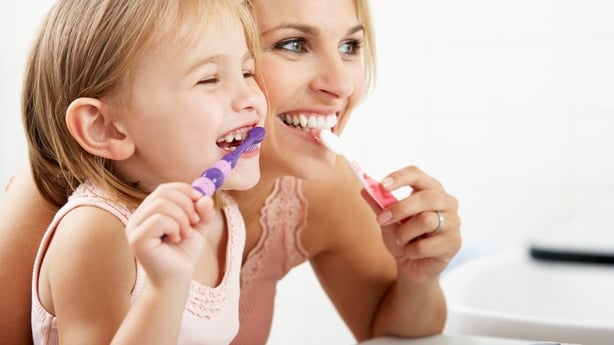Easter eggs contain a lot of sugar, which is one of the main causes of tooth decay, however, there are effective steps you can take to help protect your child's teeth this Easter," says Dr. Jennifer Collins, Clinical Director of the Dental Care Ireland group.
Before we all get stuck into our chocolate eggs over the break, here are six ways you can protect your child’s teeth this Easter…
1. Save treats for after meals
"It’s not just the amount of chocolate and sweets we eat this Easter. The frequency and timing of consumption are also important when it comes to protecting our teeth," says Dr. Jennifer Collins.
Instead of grazing on Easter eggs throughout the day, enjoy some chocolate as dessert straight after a meal. Saliva production increases during meals, which helps to rinse away sugary food particles and can reduce the risk of cavities.

2. Don’t let it linger
As well as the frequency of snacking, the length of time sugary food stays in your mouth can affect tooth decay. Avoid treats that tend to linger in the mouth, such as hard or sticky sweets, as they will do the most damage. These types of sweets can often be found in Easter treats, such as caramel or marshmallows.
3. Wash it down with water
After eating Easter treats, it is important to drink plenty of water to rinse away the sugar. The water will help to dilute any acid attacks caused by sugary snacks.
Where possible, avoid drinks that are packed with sugar. Fizzy drinks are the obvious culprit, but fruit drinks and smoothies which are often viewed as healthy can also be high in sugar and be bad for your teeth.
4. Try a mouth-cleansing snack
Eating crunchy fruits and vegetables such as carrots, apples and celery will stimulate production of saliva, which in turn helps to wash away chocolate and other sugary foods.
Alternatively, a small piece of cheese eaten after chocolate will help return the mouth to its natural acid balance and reduce the chances of developing tooth decay.

5. Remember your routine
As teeth may be exposed to more sugar and acid over the Easter period, maintaining a basic dental care routine at home is key for all the family. Ideally, brush twice per day for two minutes with fluoride toothpaste, floss daily, and drink plenty of water.
After eating an Easter egg, a good tip is to wait 30 minutes before brushing. Some acidic foods soften your enamel, so if you brush right after eating them, you can risk hurting your enamel further while it is still sensitive.
6. Schedule an Easter check-up
The Easter holiday is a good opportunity to schedule a dental appointment if you have not already done so this year. Prevention is better than cure, and regular check-ups will help to avert future problems.
Dr Jennifer Collins is Lead General Dentist at Northumberland Dental Care in Dublin 4 and Clinical Director of the Dental Care Ireland group, an Irish-owned network of established, family dental practices nationwide.

